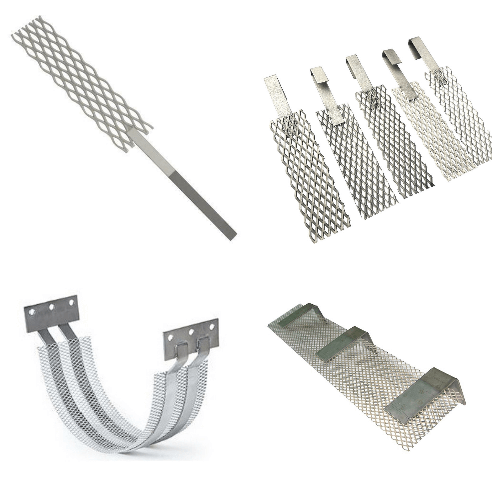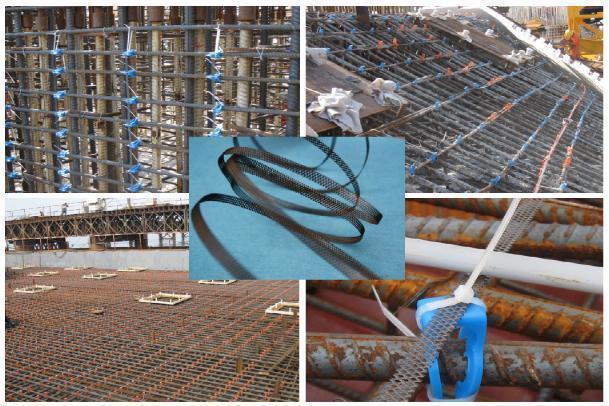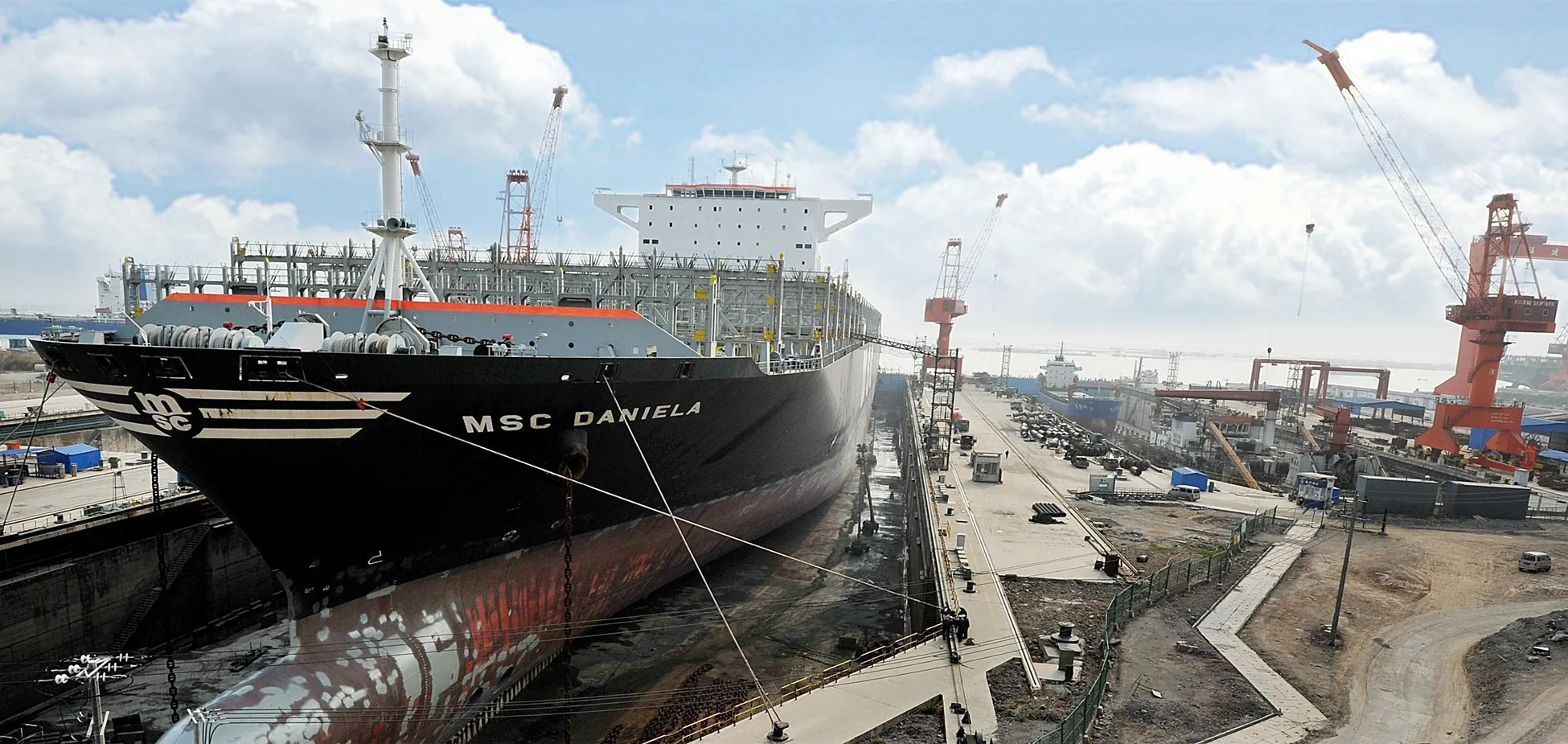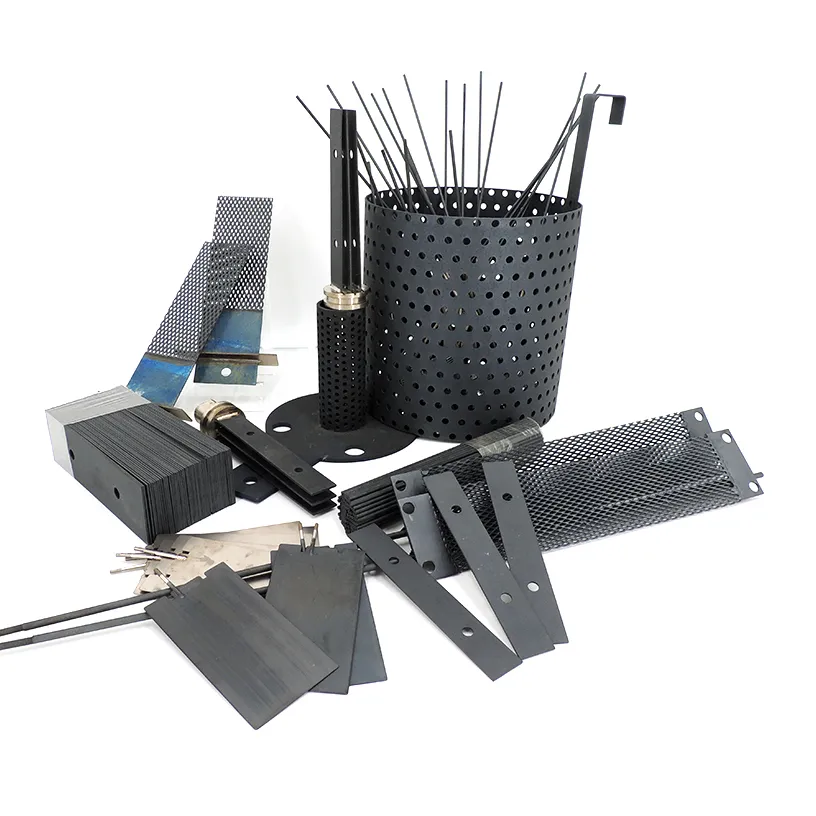When it comes to electrochemical processes, the choice of anodes is crucial for ensuring efficiency, longevity, and overall performance. Platinized Titanium Anodes have emerged as a preferred option in various industrial applications due to their excellent conductivity, corrosion resistance, and durability. This guide aims to provide a comprehensive overview of PTAs, helping businesses make informed decisions when purchasing these vital components.
What are Platinized Titanium Anodes?
A platinized titanium anode is a specialized electrode comprising a core structure of titanium, enveloped by a finely deposited layer of platinum. The integration of platinum, achieved through a precision electroplating process, endows the titanium substrate with enhanced electrochemical properties, making it apt for a myriad of industrial applications.
Table of Contents
Key Advantages:
- Corrosion Resistance: The platinum overlay acts as a formidable barrier, safeguarding the titanium base against corrosive agents, and ensuring operational consistency in challenging environments.
- Efficient Current Distribution: Owing to its exceptional conductivity, the anode promotes a balanced and even spread of electrical current, pivotal for uniform electrochemical processes.
- Extended Durability: The synergistic combination of titanium’s inherent strength with platinum’s protective attributes culminates in an anode with an extended operational lifespan.
- Minimized Overpotential: The catalytic nature of the platinum layer reduces overpotential, optimizing energy consumption and enhancing process efficiency.
- High Conductivity: Platinum, being a prime conductor, amplifies the anode’s electrical conductivity, making it suitable for high-performance industrial setups.
Applications of Platinized Titanium Anodes
Platinized titanium anodes, characterized by their exceptional electrochemical properties, find extensive application in various industrial processes. These anodes are designed by coating a thin layer of platinum on a titanium substrate, merging the excellent electrochemical characteristics of platinum with the commendable mechanical properties of titanium. This combination makes them both durable and highly efficient for a myriad of processes.
1. Electroplating
Platinized titanium anodes are extensively used in the electroplating industry. Their efficiency in the electrodeposition of metals such as gold, silver, and rhodium is highly acknowledged. The anodes ensure uniform deposition, reduced energy consumption, and prolonged operational life, making them an ideal choice for large-scale industrial electroplating.
2. Electrochlorination
In industries where disinfection is paramount, electrochlorination, which produces chlorine by the electrolysis of saltwater, employs platinized titanium anodes. These anodes are vital in applications like swimming pool disinfection, marine biofouling prevention, and potable water treatment, ensuring safe and efficient chlorine production.
3. Cathodic Protection
To safeguard metal structures, especially those submerged in water, from corrosion, cathodic protection is employed. Platinized titanium anodes, due to their robustness and longevity, are often chosen for such applications, including protecting pipelines, ship hulls, and offshore platforms.
4. Electrolytic Synthesis
In the field of organic synthesis, the electrolytic method has gained traction. Platinized titanium anodes are instrumental in various electrosynthesis processes, aiding in the production of organic compounds with high efficiency and purity.
5. Metal Recovery
Waste treatment processes often involve the recovery of precious metals from dilute solutions. Platinized titanium anodes play a pivotal role in such applications, facilitating the recovery of metals like gold and platinum through electrodeposition.
6. Electro-dialysis
For desalination and demineralization processes, electro-dialysis stands out as a promising technology. Platinized titanium anodes, with their superior electrochemical properties, are often chosen for these processes, ensuring efficient ion separation and water purification.
The versatility and durability of platinized titanium anodes have made them a staple in a range of industries. Their superior electrochemical performance, combined with their mechanical resilience, ensures that they remain an integral component in diverse applications, from water treatment to metal finishing. Businesses seeking to enhance their operational efficiency and longevity would do well to consider integrating these anodes into their processes.
Guide to Selecting the Right Platinized Titanium Anode
Selecting the appropriate platinized titanium anode is crucial to ensure optimal performance and longevity in electrochemical processes. Here is a concise guide to assist businesses in making an informed decision.
1. Determine the Application
First and foremost, clearly define the specific application for which the anode is required. Different applications, from electroplating to electrolytic synthesis, may demand varied anode specifications.
2. Assess the Electrolyte Composition
The composition and pH of the electrolyte can influence the performance and lifespan of the anode. Ensure that the selected anode is compatible with the electrolyte to prevent premature degradation.
3. Evaluate Platinum Coating Thickness
The thickness of the platinum coating plays a pivotal role in determining the anode’s efficiency and durability. Depending on the intensity and duration of the process, choose an appropriate coating thickness, typically ranging from 1 to 5 micrometers.
4. Consider the Anode’s Geometric Design
The shape and size of the anode can impact the uniformity of current distribution. Depending on the configuration of the cell or tank, select a geometric design that ensures even current distribution and optimal performance.
5. Check Mechanical Properties
The mechanical resilience of the titanium substrate is essential, especially for applications that might involve physical stress. Assess attributes like tensile strength, elongation, and hardness to ensure the anode’s mechanical stability.
6. Review Manufacturer Credentials
Opt for manufacturers with a proven track record in producing high-quality platinized titanium anodes. Certifications, testimonials, and case studies can provide insights into a manufacturer’s credibility and product quality.
7. Budgetary Considerations
While it’s essential to prioritize quality, also consider the cost-effectiveness of the anode. Analyze the total cost of ownership, including initial investment, operational efficiency, and expected lifespan, to ensure a balanced selection.
Selecting the right platinized titanium anode is a nuanced process that demands careful consideration of various factors. By following this guide, businesses can ensure they procure anodes that align with their operational needs and deliver consistent, high-quality performance.
Leading Innovators in the Platinized Titanium Anode Industry
In the arena of electrochemical applications, sourcing the right Platinized Titanium Anodes is of paramount importance. Here’s a list of five prominent suppliers renowned for their commitment to quality, product excellence, and industry presence:
1. Elade Technology Co., Ltd.
Overview: Situated in China, Elade Technology specializes in titanium-based anode production, offering a diverse range of PTAs designed for various applications.
Strengths:
- Extensive product range.
- Tailored solutions for bespoke applications.
- Robust research and development capabilities.
2. Uyemura International Corporation
Overview: With footprints across North America, Europe, and Asia, Uyemura stands as a global stalwart. They provide a spectrum of surface finishing solutions, PTAs being a prime offering.
Strengths:
- Deep-rooted experience in the electroplating domain.
- High-grade anodes promising uniform performance.
- Adept technical support and consultation services.
3. De Nora
Overview: Boasting over a century of expertise, De Nora is a torchbearer in electrochemical innovations. Their PTAs are synonymous with resilience and operational efficiency.
Strengths:
- A rich lineage in the electrochemical sector.
- Cutting-edge solutions underpinned by rigorous research.
- A global expanse complemented by localized assistance.
4. Tiaano
Overview: Tiaano, headquartered in India, is a distinguished manufacturer and purveyor of PTAs and a suite of electrochemical goods, serving both the domestic and global markets.
Strengths:
- Comprehensive in-house design and fabrication capabilities.
- Bespoke solutions catering to a myriad of applications.
- Competitive pricing structures with an unwavering focus on quality.
5. Hele Titanium
Overview: Renowned for its engineering excellence and cutting-edge technology, Hele Titanium is a key player in the titanium materials industry. With a global footprint, the company specializes in the production of high-quality Platinized Titanium Anodes among a portfolio of other titanium-based products.
Strengths:
- Strict adherence to international quality and safety standards, ensuring that their PTAs meet the rigorous demands of various industries.
- A dedicated research and development team that continuously innovates to offer superior products and solutions.
- Comprehensive customer support, including after-sales services and technical consultancy, to help clients achieve optimal performance and cost efficiency.
How to Find a Reliable Platinized Titanium Anode Supplier?
From a manufacturer’s standpoint, sourcing the right Platinized Titanium Anodes is a critical operation that can have a significant impact on product quality, operational efficiency, and bottom-line results. Here are key considerations for businesses seeking a reliable supplier:
1. Quality Assurance
- Look for suppliers that have a robust quality control system in place, complying with international standards such as ISO 9001.
- Verify the purity of the titanium substrate and the thickness of the platinum coating through certifications or third-party testing.
2. Technical Expertise
- Choose a supplier with a strong R&D department that can provide innovative solutions tailored to specific application requirements.
- Technical support and consultation services should be readily available to address any queries or challenges.
3. Track Record
- Examine the supplier’s history in the industry. A reputable supplier will have a portfolio of satisfied clients and case studies that demonstrate their capabilities.
- Look for customer testimonials or seek references to gauge the supplier’s reliability.
4. Customization Capabilities
- Depending on the application, you may require anodes with specific shapes, sizes, or coatings. Ensure the supplier can meet these customization needs.
5. After-sales Support
- A reliable supplier will offer comprehensive after-sales services, including warranty, maintenance guidelines, and prompt customer support.
6. Pricing and Delivery
- While cost should not be the only deciding factor, it’s crucial to evaluate the total cost of ownership, including any additional charges for customization or expedited delivery.
7. Certifications and Compliance
- Ensure that the supplier’s products meet all regulatory requirements and certifications pertinent to your industry.
By diligently evaluating prospective suppliers on these parameters, you can secure a partnership that not only fulfills your immediate procurement needs but also aligns with your long-term strategic objectives.
Summary
In the complex landscape of electrochemical applications, the choice of anodes is a pivotal decision that can greatly influence operational efficiency, product quality, and overall costs. This guide provides an exhaustive overview of Platinized Titanium Anodes (PTAs), from their fundamental characteristics to their myriad applications across various industries. With a focus on the distinct advantages that PTAs offer, such as high corrosion resistance and durability, the guide serves as a roadmap for businesses to make informed purchasing decisions. It outlines critical factors such as quality assessments, customization options, and supplier selection, aiming to equip potential buyers with the tools they need for optimal procurement. Whether you are new to the electrochemical sector or looking to optimize existing operations, this guide is your go-to resource for all things related to Platinized Titanium Anodes.






